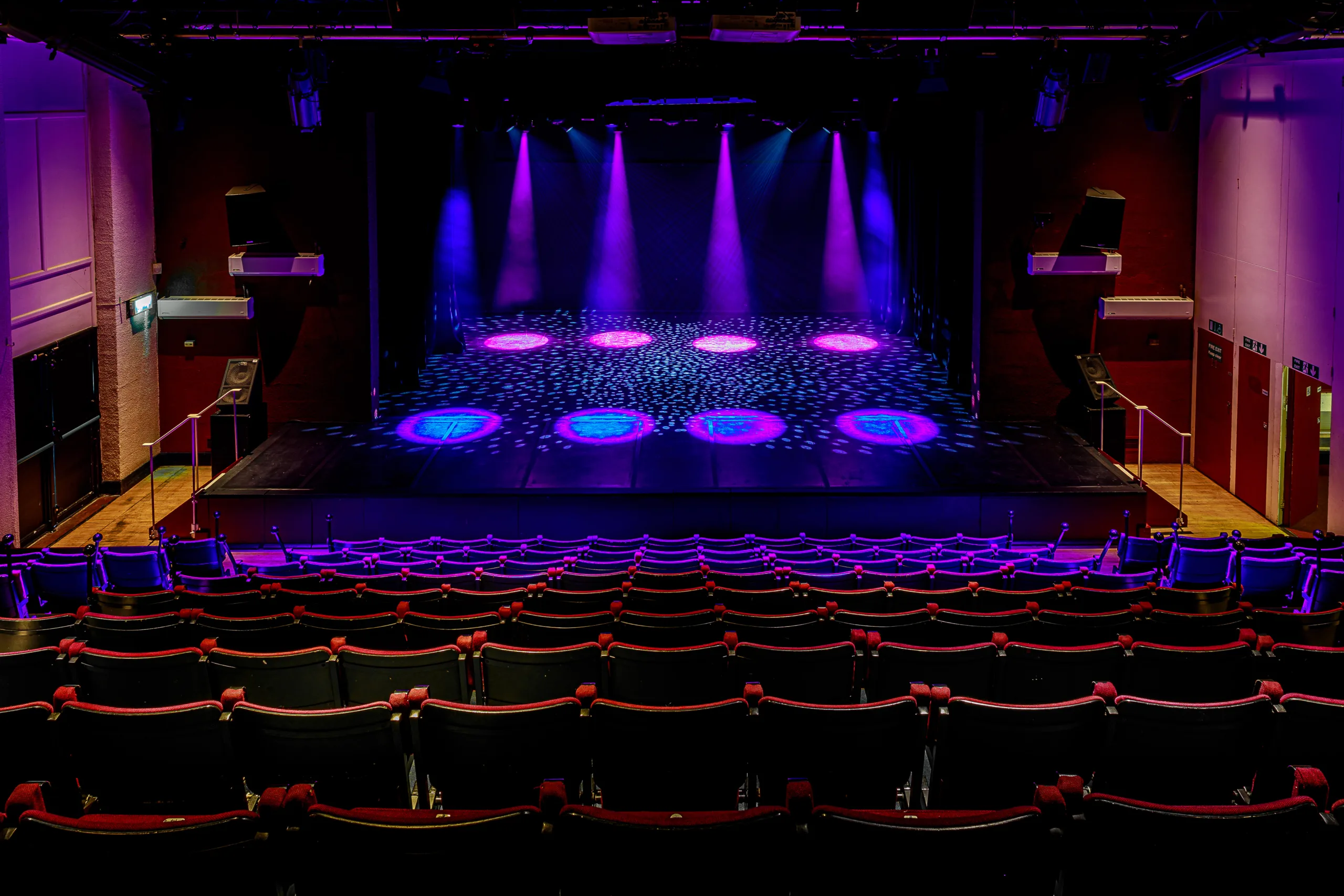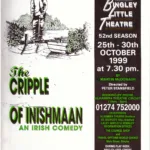Season 52 Play 2 – The Cripple of Inishmaan by Martin McDonagh
Directed by
Cast
EILEEN – Wendy Keeton
JOHNNY PATEEN MIKE – Gordon Sugden
BILLY – John Greenwood
BARTLEY – Adam Barrett
HELEN – Rebecca Richardson
BABBY BOBBY – Laurie Toczek
DOCTOR – Douglas Swift
MAMMY – Valerie Jenkins
Synopsis
The story of Cripple Billy is a strange, sad yet comic tale set on a remote island off the west coast of Ireland in 1934. However, the rural setting is no paradise. Life and language is basic, amusements simple, sometimes crude and cruel. Yet a strong sense of community binds this group of bickering individuals, the depth of which is revealed only in the closing minutes of the play. Be prepared for a challenge to ideas of political correctness and middle-class conventions.
Directors Notes
In 1934 Hollywood director Robert Flaherty released his seminal documentary ‘Man of Aran’, portraying raw existence on the remote and rugged isles of Aran off Ireland’s west coast. The film dramatically climaxes with the islanders engaged in a life and death struggle with a huge basking shark from which, we are told, they need to extract oil to fuel their lamps. Praised at the time for its realistic portrayal of humanity scratching a meagre existence from a barren rock and forbidding ocean, the film actually painted a picture which was some distance from the truth about how life was being lived on the islands. For a start, it had been some years since the islanders had hunted and caught shark, so long in fact that they had to be trained to do it by experts brought by Flaherty from America. There was little call for shark oil in 1934 as most of the islanders already had electric light. In reality, the sharks the islanders had most cause to be concerned about were their landlords.
Martin McDonagh wrote this play for the National Theatre two years ago when only 26, and gives a personal portrayal of his parents homeland, though he grew up in south London. He is not an Irish nationalist, he is not stuggling with the old traditions. Like others of his
generation of Irish dramatists, he is simply looking at the peculiar fragments of a dead society.


